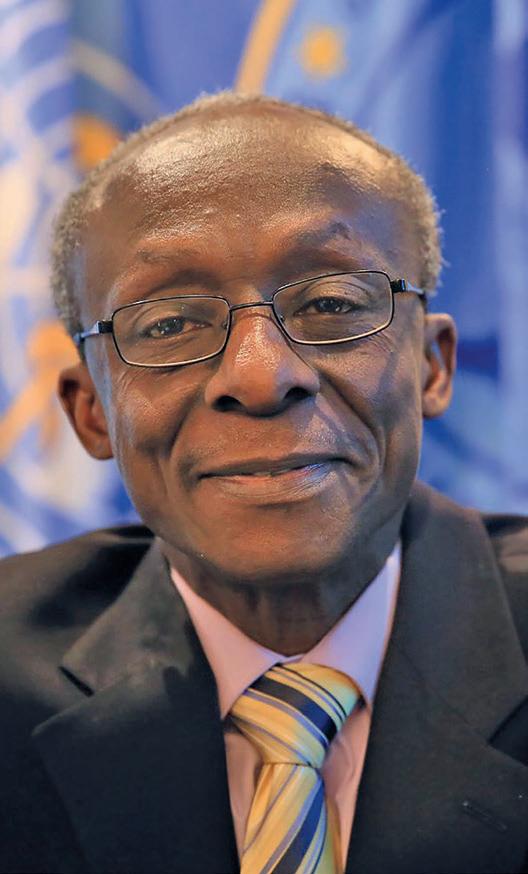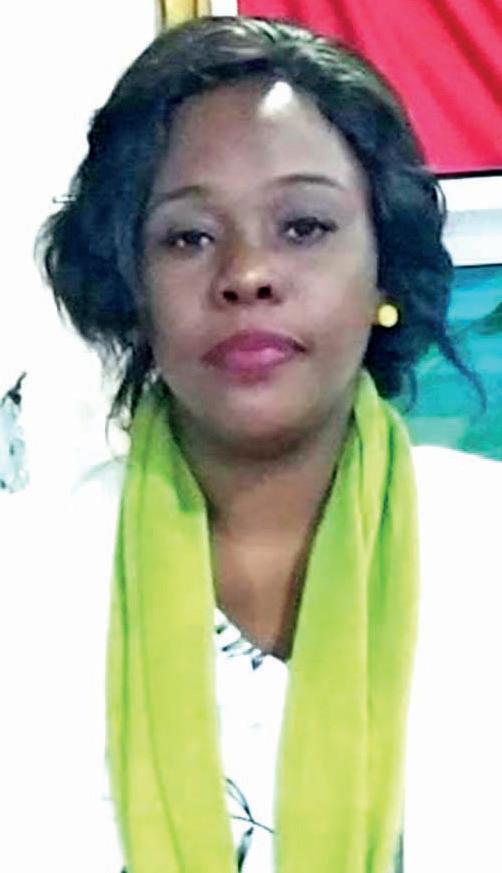
21 minute read
Berbice P
Berbice labourer stabbed to death by brother
AShieldstown, West Bank Berbice, Region Five (MahaicaBerbice) labourer is now dead after he was stabbed to the chest by his younger brother during a row over land.
Dead is 45-year-old Sarananand Bisnath called “Sardanan” and “Long Hair” of Back Street, Shieldstown. His 44-year-old brother has since been arrested.
Reports are that the two brothers were imbibing when a verbal disagreement erupted over land.
At the time, the now who was still sitting in the hammock.
dead man was sitting in a hammock under the house eating food he had earlier purchased from a nearby Chinese restaurant.
The land the brothers were arguing over is owned by their father who lives in the same house with Sarananand. The suspect lives a short distance away.
The father was out on his farm when the incident occurred.
Guyana Times understands that during the argument, the younger brother armed himself with a knife and attacked Sarananand, village.
The suspect being arrested after he fatally stabbed his brother and fled the scene

Sarananand tried to bar the vicious attacks and as a result, sustained a cut on the right arm. The knife, however, ended up stabbing him to the chest in the vicinity of his heart.
The injured man reportedly got out of the hammock and the two were engaged in a scuffle until Sarananand finally freed himself. He took a few steps before collapsing.
The suspect then fled the scene. However, the police were alerted and he was subsequently arrested in the
Meanwhile, the lifeless body of the 45-year-old labourer was picked up and taken to the Fort Wellington Hospital, where he was pronounced dead on arrival (DOA). It is awaiting a post-mortem examination (PME) which is expected to be done on Monday.
Villagers told this newspaper that the two brothers were frequently involved in heated arguments.
Nevertheless, the suspect remains in custody assisting Police with their investigation.
The Back Street, Shieldstown residence where the incident occurred



Credible recount an opportunity to avoid sanctions – EU Ambassador
Once the national elections recount is credibly completed and the results generated accepted, Guyana will avoid being hit with sanctions from the European Union (EU) – which has once again warned that cooperation will be suspended if democracy fails.
This is according to the Head of the EU Delegation in Guyana, Fernando Ponz Canto, who, during an exclusive interview with <<<Guyana Times>>>, expressed that “the best thing I would like to do about sanctions is to prevent them.”
Concerns are being raised about the A Partnership for National Unity/Alliance For Change (APNU/AFC) coalition gearing up to reject the results emanating from the recount exercise. They have already been refusing to sign off on the Certificates of Recount for district tabulation for several regions.
But Ambassador Ponz Canto reminded that the current recount is a “window of opportunity” to avoid sanctions.
“I want to be positive… there is a window of opportunity … it’s really no good that three months have passed since the elections and you still don’t have a fully established democratic Government.”
“But there is still an opportunity that everything ends well and by that, I mean that the party that won the popular vote on March 2 is recognised as the winner of the elections and forms a Government,” the EU diplomat said.
Referring to the Cotonou Agreement – of which Guyana is a signatory – Ambassador Ponz Canto asserted that cooperation will be suspended if democracy fails.
The Cotonou Agreement is the framework of cooperation under which the EU works with the 79 countries of the African, Caribbean, and Pacific (ACP) Group, including Guyana.
On March 13, the EU – along with the ABC countries – warned political players against leading Guyana into “isolation” by swearing in a President on the basis of results that are not credible.
The warning was made on the heels of remarks by agents of the APNU/ AFC who were determined to have their Presidential Candidate, David Granger, sworn in on the basis of flawed results.
During the interview, the EU Ambassador reiterated that the “tabulation process for Region Four was not credible, [it] was not reflecting the will of the people, it was following a process that was not the right process.”
He went further to remind that the EU will not be recognising any undemocratic Government.
“If anybody thinks that we are going to change our position on that, because of time or because of other considerations, let me tell you that there are zero chances of that,” he asserted, clarifying that “change our position on the fact that if a non-democratic Government was to be installed, we will not deal with that as a democratic partner.”
But asked what would be the EU’s position should the results from the recount be rejected by one of the political parties, Ambassador Ponz Canto was optimistic that this would not happen.
Pointing out that the recount exercise was agreed upon by the top leaders from both sides of the political divide, he stated that “I trust that they would do everything in their hands to make sure that the recount results are respected. When I say results, let me be very clear, I mean the counting of the votes, the quantitative counting of the votes, which
…reminds that undemocratic Govt will not be recognised Head of the EU Delegation in Guyana, Fernando Ponz Canto
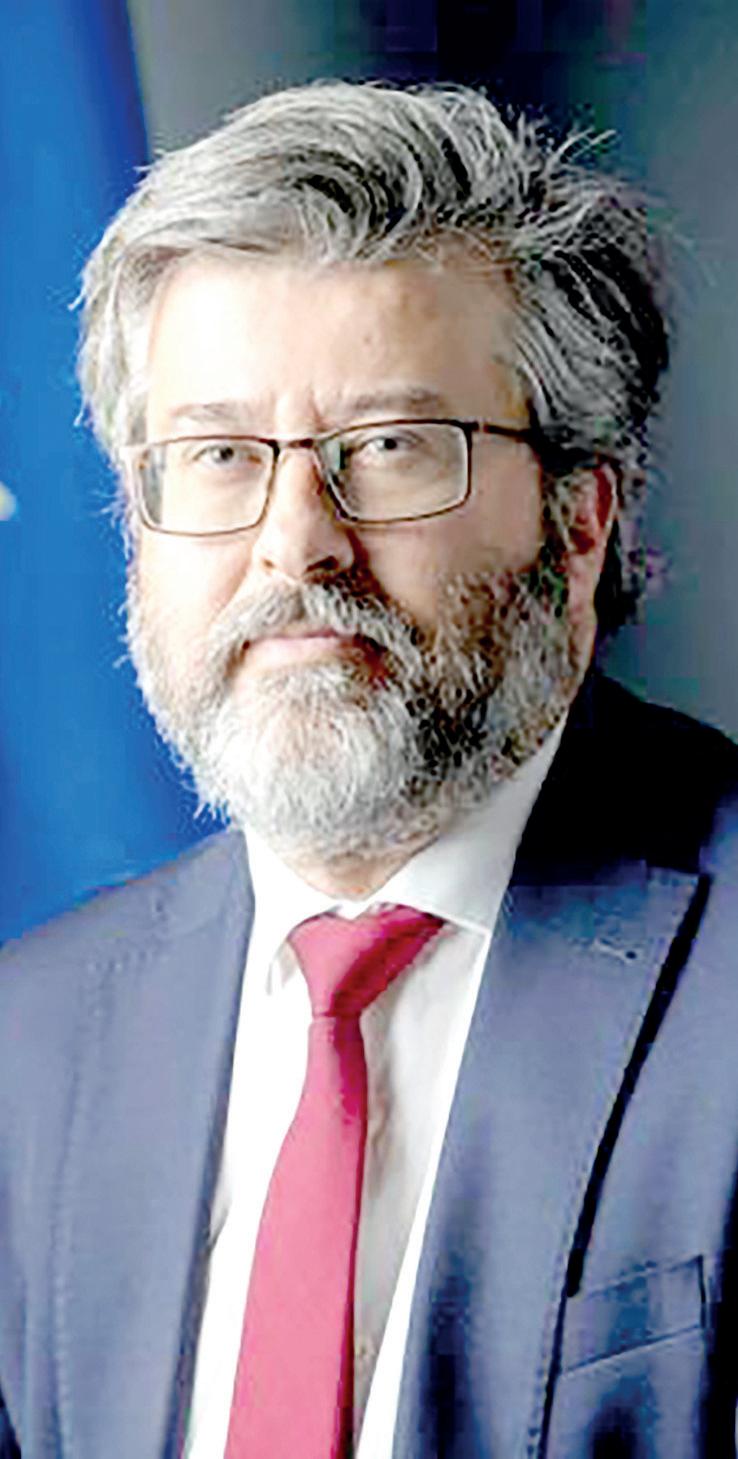
They were charged for breaching the curfew and disorderly behaviour. The driver, 26-year-old Keron Daniels of Lot 136 Continental Park, East Bank Demerara (EBD), and 32-year-old Latoya Stanford, a teacher, of Lot 19 Uitvlugt, West Coast Demerara (ECD), appeared before Magistrate Esther Sam and pleaded guilty to the charges.
The charge stated that on May 20 they both breached the curfew restrictions and were fined a total of $26,250 each. Further, Daniels was also charged with disorderly behaviour and pleaded not guilty and was released on $15,000 bail for that offence.
The prosecution’s case stated that on May 20, the two encountered Police ranks in front of the Leonora Police Station at about 20:40h. According to the prosecution’s case, the driver was abusive to Police ranks after which Daniels drove away. Police gave chase and intercepted the vehicle at the Demerara Harbour Bridge at 21:30h.


Adriver along with a teacher, who were seen in a widely circulated video arguing with ranks of the Guyana Police Force (GPF) after being caught breaching the national curfew, were hauled before the Vreed-en-Hoop Magistrate’s Court.
in my humble understanding is the objective of any recount exercise.”
The EU Ambassador further highlighted that the purpose of a recount is to “count” and there are other avenues to address any other issues that may arise from the process.
The EU Ambassador reasoned that, so far, the recount process has proven to be “excellent”, and if at the end the recount is still excellent, “then the quantitative results are also accurate, and then they have to be recognised.”
Just last week, Opposition Leader Bharrat Jagdeo pointed out that only credible recount results can stave off sanctions.
Earlier this month, US Ambassador to Guyana Sarah Ann Lynch also warned that sanctions are still on the table for Guyana over electoral fraud.
Like the EU Diplomat, she too noted that there is still an opportunity for Guyana to avoid sanctions from the US. “We are hopeful though, that we don’t have to go down that road. Even if they’re at the ready, those tools, we don’t want to go down that road. And we’re in this recount process right now. My observation is that it’s going well,” she had stated.
During the Leonora incident, someone recorded and posted the video on Facebook. The driver can be seen in the video being abusive to ranks and in one instance, took out a hockey stick and attempted to hit a rank. The case will continue on August 27, 2020. Teacher, driver fined for breaching curfew
Charged: Keron Daniels
Rodney, culture and unity revisited
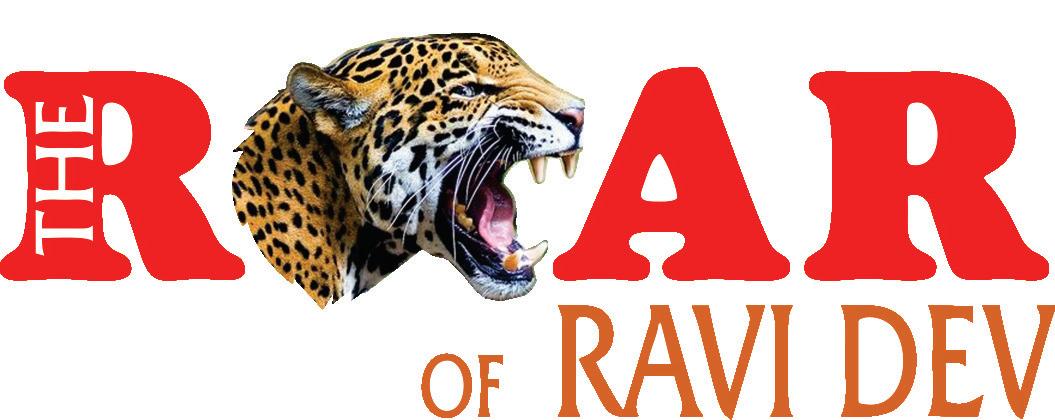
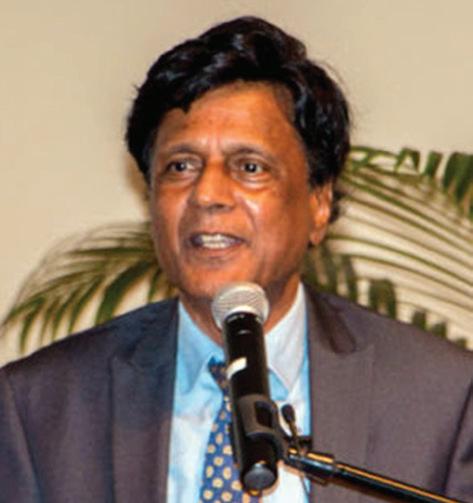
Ravi Dev
The 40th anniversary of the death of Dr Walter Rodney is two weeks away. The CoI that examined the circumstances of his death had submitted its Report, but the APNU/AFC Government refused to make it public. But Rodney had made too much of an impact during his short life for his legacy to be reduced only to his death. At this time of heightened ethnic tensions, occasioned by the blatant rigging of the PNC, it is important to relook at his wider legacy, and maybe apply some of his insights on Black-Indian relations.
Rodney was deeply influenced by the three ideological currents that swept the Caribbean after WWII – Marxism, anticolonialism and Black Power/Pan-Africanism. A member of a study group that had coalesced around CLR James in London, he obviously agreed with the assessment of the great Marxist: “The race question is subsidiary to the class question in politics, and to think of imperialism in terms of race is disastrous. But to neglect the racial factor as merely incidental is an error only less grave than to make it fundamental.”
Rodney did not return to Guyana because of the complexities the racial hostilities had engendered among the Indian and African segments between 1962 and 1964. In Tanzania, where he taught at the University between 1966 and 1968, he criticised the transfer of power by the British to local African leaders as a “briefcase revolution” from a Marxist perspective. Refused a teaching appointment at UG in 1968, he went on to the Mona Campus of UWI, his alma mater, where he dismissed the Jamaican leader Hugh Shearer as another “briefcase leader” who refused to address the contradictions in WI society.
His slim 1969 book, “Grounding with my brothers”, summarised the lessons he took outside the classroom and into the “gullies” of Kingston. He opened their eyes to Black Power: “Black power is a doctrine about black people, for black people, preached by black people…. The colour of our skin is the most fundamental thing about us…. In doing so, I am not saying that is the way things ought to be. I am simply recognising the real world – that is the way things are.”
He pointed out the power of oppression to sustain identities: “So long as there are people who deny our humanity as blacks, for so long must we proclaim and assert our humanity as blacks.”
The furore generated by the murder of George Floyd in Minneapolis reminds us of the universal streak of anti-African racism bequeathed to the world by “western civilisation”, but Rodney had a message for us in the Caribbean.
Speaking in Jamaica, with its 1% Indian population, and away from the challenges of his native Guyana, Rodney yet noted its racial divisions and pleaded for working class unity. He pointed out that, to “whites”, there was no difference between Africans and Indians: “Today some Indians (like some Africans) have joined the white power structure in terms of economic activity and culture; but the underlying reality is that poverty resides among Africans and Indians in the West Indies and that power is denied them. Black power in the West Indies, therefore, refers primarily to people who are recognisably African or Indian.”
Describing Black Power as “The hope of the black man (remember, Rodney uses this term to include both Black and Indian) that he should have power over his own destinies”, Rodney made a point that is very apropos to Guyana today: “This is not incompatible with a multiracial society where each individual counts equally. Because the moment that power is equitably distributed among the several ethnic groups then the very relevance of making the distinction between groups will be lost.”
But after he returned to Guyana in 1974, he acknowledged the continued salience of culture over class. While pointing out the homogenising impact of creolisation, Rodney conceded that Indians and Africans had not overcome their cultural differences to develop working class consciousness. In his last book, published posthumously in 1981, he concluded: “…the existing aspects of cultural convergence were insufficiently developed to contribute decisively to solidarity among the working people of the two major race groups. The obverse of this race-class conjuncture is that the development of class forces and class consciousness was inadequate to sustain unity of the working people across the barriers created by legal distinctions, racial exclusiveness, and the separate trajectories of important aspects of culture.”
Overcoming these “barriers” remains our challenge.





13 SUNDAY, MAY 31, 2020 | GUYANATIMESGY.COM NEWS Flaring only temporary, non-routine – ExxonMobil
…says gas compressors not fully commissioned
In the wake of concerns expressed by an international group of environmentalists regarding the flaring of gas offshore Guyana by Exxon subsidiary Esso Exploration & Production Guyana Limited (EEPGL), the company has sought to assure that its flaring is only temporary and that ways are being found to use the gas, in the absence of any gas to shore facilities.
In an invited comment, Exxon Public Affairs Adviser Janelle Persaud explained that by design, EEPGL’s operations do not utilise routine flaring. According to her, they use the gas both to power the Liza Destiny Floating Production Storage and Offloading (FPSO) vessel and to reinject.
“Startup for Liza Phase 1 involves temporary, non-routine flaring to fully commission the gas compression and injection systems for safe operations as outlined in the approved environmental impact assessment and permit,” Persaud said.
“The Liza Phase 1 project design eliminates routine flaring by using produced gas to power the Liza Destiny FPSO vessel and by reinjecting gas into the reservoir to conserve the gas and to improve oil recovery, thereby reducing emissions compared with traditional methods.”
According to her, they have since begun gas injection into the reservoir. Gas reinjection is a common process used by oil and gas operators to maintain pressure and enhance oil production by reinjecting gas back into the reservoir.
“We have successfully started up the gas handling system and begun gas injection into the reservoir. We continue to safely complete final commissioning of the system. This process is operationally necessary, standard in the industry and consistent with related Guyanese laws,” Persaud said. However, queries about how much gas was flared went unanswered.
It was only a few days ago that Environmental Protection Agency (EPA) Director, Dr Adams said in an interview with this publication that the Liza Destiny Floating Production Storage and Offloading (FPSO) vessel being used by ExxonMobil had started reinjecting gas.
He had acknowledged that in normal circumstances, ExxonMobil is not allowed to routinely flare gas during production. However, he noted that the flaring done by ExxonMobil is still catered for in their permit.
“The permit says they’re not allowed to flare routinely during production, except in cases of emergency and startup. They are in the startup mode here now. And what had happened is that the equipment was assembled onshore. It was tested on a different type of gas. So when they brought it offshore, they had to test it with the gas that is going to be produced,” he explained.
Adams had also explained that ExxonMobil had to flare the gas anyway because, at the startup, all


the gas and accompanying pressure could not be reinjected.
According to Adams, going forward, flaring would not have been allowed once the project gets past this startup phase. However, he was confident that ExxonMobil now has the right design for its equipment.
But on Friday, the Center for International Environmental Law (CIEL) released a statement in which it called on the company to stop flaring gas offshore Guyana. CIEL claimed that the flaring exceeded the levels approved by the Government, a level that now puts Guyana among the top ten gas flaring countries in the world.
“The carbon dioxide
SASOD explained that the pandemic continues to present significant challenges for vulnerable communities, including women, girls, youth, lesbian, gay, bisexual, transgender and other queers (LGBTQ+), persons with disabilities, persons living with HIV, migrants, the elderly and those in extreme poverty.
“A key element to these challenges is the pandemic of gender-based violence,
SASOD offering free counselling, legal services for vulnerable groups
The Society Against Sexual Orientation D i s c r i m i n a t i o n Guyana (SASOD) has announced free counselling and legal services for vulnerable persons amid the COVID-19 pandemic.
which disproportionately affects one in three women globally, according to the World Health Organisation (WHO). The sad reality is

emissions from that flaring are approximately equivalent to the amount generated by Guyana’s entire population over three months,” CIEL said in its statement. “And the problem risks getting worse over time as Exxon moves forward to extract the estimated 8 billion barrels of recoverable oil it has discovered off Guyana’s coast.”
SASOD President Joel Simpson
that many women and girls who are trying to reduce the contraction of COVID-19 by observing quarantine and lockdown measures are confined to their homes with abusers. In many countries, there has been a significant increase in the number cases of sexual and gender-based violence, including intimate partner violence, as data from UNFPA,” SASOD said in a recent statement.
To this end, the human rights advocacy group underscored its concerns about the increase in incidents of cyber-bullying against LGBTQ+ persons in Guyana.
CONTINUED ON PAGE 14
14 NEWS SUNDAY, MAY 31, 2020| GUYANATIMESGY.COM T he Muslim Youth Organisation (MYO) of Guyana has embarked on the distribution of another 400 food hampers to the poor, needy and vulnerable in Guyana.
MYO said that people are becoming more and more in need of assistance to cope with the struggles of their daily lives amid COVID-19, hence its distributions.
“Under these circumstances and as Muslims, we are commanded by Allah [God Almighty] to render assistance to those in need,” the organisation said on Saturday.
“Many of these cases are unreported and perpetrators are not held accountable,” it explained.
In addition, SASOD said that they are cognisant of the devastating and traumatic effects that these acts of violence have on the mental health of persons.
“Against this background, SASOD Guyana with support from the Caribbean Vulnerable Communities Coalition (CVC), is offering free counselling sessions utilising Voice over Internet Protocol (VoIP) platforms, as we continue to practice physical distancing. For survivors of gender-based violence, free legal services are also offered by our pool of CARIBONO lawyers through our Community Paralegal Services Programme,” the statement from SASOD detailed.
Some of the hampers that were distributed by the MYO
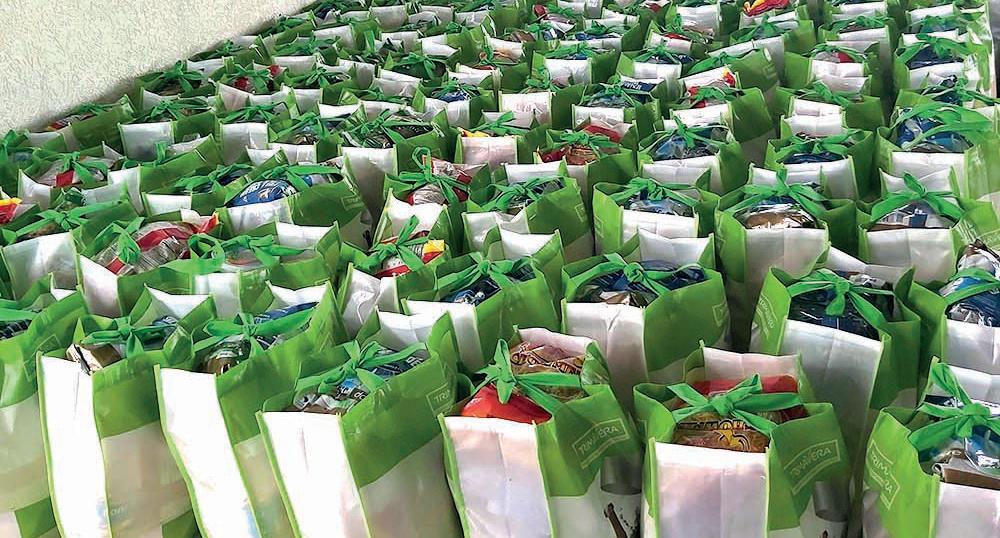
SASOD offering free counselling...
Meanwhile, persons who are interested in these services are asked to call, SMS or WhatsApp SASOD Guyana on mobile number +592 623 5155.
“These support services are life-saving and essential, especially for the most vulnerable and marginalised among us”, the organisation added.
SASOD has been providing informal legal services to members of the
Recently, MYO distributed 500 food hampers to various communities throughout Guyana.
It said that it continues to work tirelessly to bring much-needed aid to families across Guyana. MYO donates 400 more hampers to vulnerable groups

FROM PAGE 13
LGBTQ+ community over the past years two years. In 2018, the organisation established a more structured paralegal service initiative so that it can secure funding for such initiatives for vulnerable groups particularly the LGBTQ+ community.
Its services include a network of experienced attorneys that provide their services on a pro bono basis to the clients.
What you should know about Biodiversity
“I ’m very concerned for the future of the earth and its amazing creatures. We’ve got to be careful and make sure we don’t foul our own nest.” – John Lithgow Guyana joined many other countries around the world in celebrating the International Day for Biological Diversity on May 22, 2020. With that, you would have probably read a lot about species’ and ecosystems’ diversity, and how some of the world’s biodiversity have had to be protected because of irresponsible human actions.
But what do these terms really mean, and what should you know about them?
Species: A group of organisms capable of interbreeding and producing fertile offspring of both genders, and separated from other such groups with which interbreeding does not (normally) happen.
Ecosystem diversity: The variety of ecosystems in a community of living organisms interacting with each other and their surroundings, e.g., forests, ponds, savannahs, marshes, etc.
Species diversity: This variety is the basis for distinguishing organisms into different groups, e.g., humans, insects, cats, dogs, fishes, palms, mangroves, etc. Species diversity plays a pivotal role in making life on earth expansive, captivating, and unique.
Although biologists are not really sure how many species live on earth, they have agreed that it is an astronomical number, since the estimates range from about 2 million to about 100 million.
Genetic diversity: Within each species there is a genetic variability, causing each organism from the same group to be different. One example of diversity within species is dogs; dogs are a single species, but there are many different “breeds” of dogs. The same applies to members of a family; for example, you may have inherited similar genes, but everyone has their unique features.
Factors affecting biodiversity Extinction
According to scientists, since the beginning of the Industrial Revolution, when man began to use a lot of machinery to make work easier, a large number of species have become extinct.
And according to research, human actions have accelerated the rate of extinction to between 1,000 and 10,000 times faster than natural extinction.
Habitat loss, degradation & fragmentation
A rapidly increasing human population and the quest for wealth have been causing significant degradation on the world’s ecosystems. Since the habitat and food are specific to the species, such disruption has affected species’ productivity due to factors such as food shortage, increase in predators, etc.
Invasive alien species
This is a very important cause of extinction which is usually overlooked. However, invasive alien species can invade an ecosystem and out-compete the native species, thereby forcing them out. It’s basically about a foreign species coming into an environment and adapting so well that they force the native species out.
Pollution
This is another factor which poses serious threats to species. Since many species are habitat- and food- specific, contaminants can alter the habitat and food supply of species, thereby affecting their productivity and survival. Plastic pollution, especially that of single-use plastics, has been very detrimental to our biodiversity, hence the call to eliminate single-use plastics from our environment.
Climate Change
This is a single indispensable factor which threatens species and ecosystems. The distribution of many species is largely determined by climate. In addition, many species of birds and marine turtles are migratory. The change in climate would shift this distribution and affect the productivity of species, since climate can become relatively unpredictable and difficult to forecast. Further, changes in climate would cause changes in ecosystems and ultimately habitats, hence many species would be unable to adapt to these changes in conditions, thereby accelerating the rate of their extinction.
As a result of the issues of habitat loss and degradation of the environment due to pollution, deforestation, and more direct threats such as overhunting and trapping, many species are becoming endangered. Endangered species such as the Harpy Eagle, Giant Anteater and Jaguar, which are all found here in Guyana, are at an overall low in population size in the world today. As a result, if existing populations are not monitored through conservation efforts, they may soon be added to the list of extinct species.
As such, the work done in Guyana over the past years has been especially vital in conserving our wild flora and fauna. Some of the actions that have been implemented include: 1. Development of a National Biodiversity Strategy and Action Plan; 2. Development of a National Biosafety Bill and Regulations; 3. Establishment of the National Agricultural Research and Extension
Institute (NAREI) as the National Biosafety Lab; 4. Development of the Wildlife Conservation and Management Act; 5. The crafting of regulations on access to genetic resources and benefit sharing; 6. Establishment of protected areas; and 7. Hosting of training workshops, community projects and awareness programmes on addressing biodiversity issues.
As we continue to celebrate our achievements in biodiversity conservation, we call for the continued support of relevant agencies and you, the general public, to ensure our natural wealth is preserved; since we all benefit from the goods and services biodiversity provides.
Please follow us on Facebook and Instagram for our World Environment Day activities, to learn more about biodiversity and what you can do to help.
Participate in our video challenge, which ends on June 05, 2020, to showcase your backyard biodiversity and win fabulous prizes. Check out our Facebook and Instagram pages for more details.
Sources
• https://www.trvst.world/foa/biodiversity/biodiversity-quotes/ • https://www.worldwildlife.org/pages/what-is-biodiversity • https://www.nationalgeographic.org/encyclopedia/biodiversity/ • https://www.cropscience.bayer.com/people-planet/biodiversity? msclkid=6d0ab59de37e18f8f024eb563eb5949a&gclid=CP3Rl4ukzkCFYp3gQodCy0M8w&gclsrc=ds

